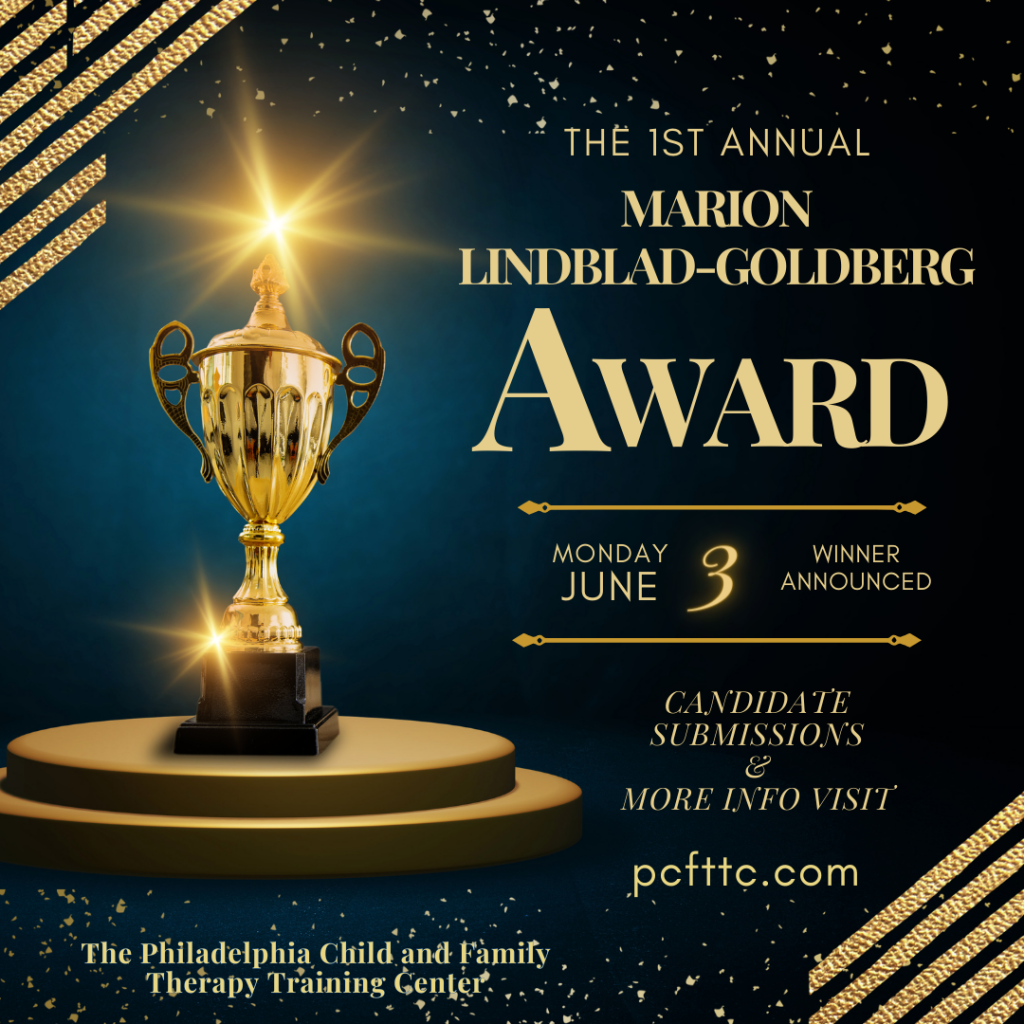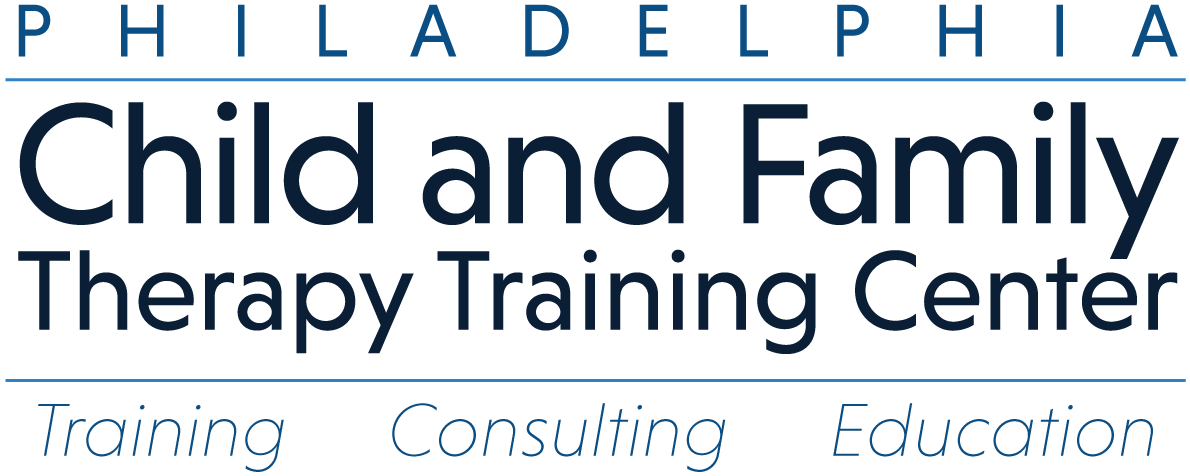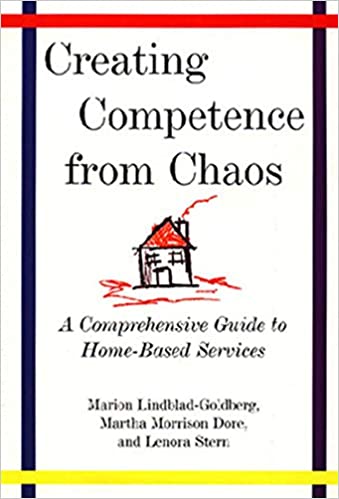
This award has been established by the Philadelphia Child and Family Training Center in honor of Dr. Marion Lindblad-Goldberg whose personal and professional mission was to make the world a better, brighter, and more connected place one family at a time. She believed wholeheartedly in each of us – in our ability, through systemic and relational interventions, to heal disengagement and cultivate belonging.
Each year the award is given to a trainer, clinician, and program director/supervisor, from the ESFT-FBMHS Training Program, who exemplifies the following:
- Maintains a systemic perspective. Nominees have an appreciation for the isomorphic process in training, treatment, supervision, and across systems. Nominees maintain awareness of the “whole” while working the “parts.”
- Maintains balance between professional boundaries and collaborative relationships to foster positive change and competence. Nominees take a strength-based approach, balancing their professional/expert knowledge while collaboratively engaging the ecosystem to draw on existing strengths and create experiences of trust, building individual competence for all members of the system.
- Engages in social ecology. Nominees have a deep appreciation for intersectionality and the lived experiences of others. As such, they express an unwavering commitment to understanding how their own social ecology and zone of proximal development informs their professional work. Nominees consistently utilize their support system to engage in deliberate practice to grow their professional skills.
- Makes the most of intensity and crises. Nominees have an ability to see struggle and chaos as an opportunity for growth and development. They demonstrate facilitative leadership by keeping second order change in the forefront of their approach to individual or system distress. They nurture others’ capacity to make meaning, promote new relational patterns and shift belief systems towards lasting change.
- Assesses with complexity while acting with simplicity. Nominees have a belief that training, treatment and supervision are relational, contextual, developmental and trauma informed. They demonstrate these concepts actively in their work through systemic assessment and conceptualization. While their understanding of people and situations are complex, those around them experience the person’s actions and communication as accessible and validating.
Nomination are due by March 1st, 2024.
Nominees and Recipients will be previewed across social platforms.
Winners announced on June 3rd, 2024.
Recipients of the award will celebrate with PCFTTC Faculty & receive access to homestudies.



Leave a Reply